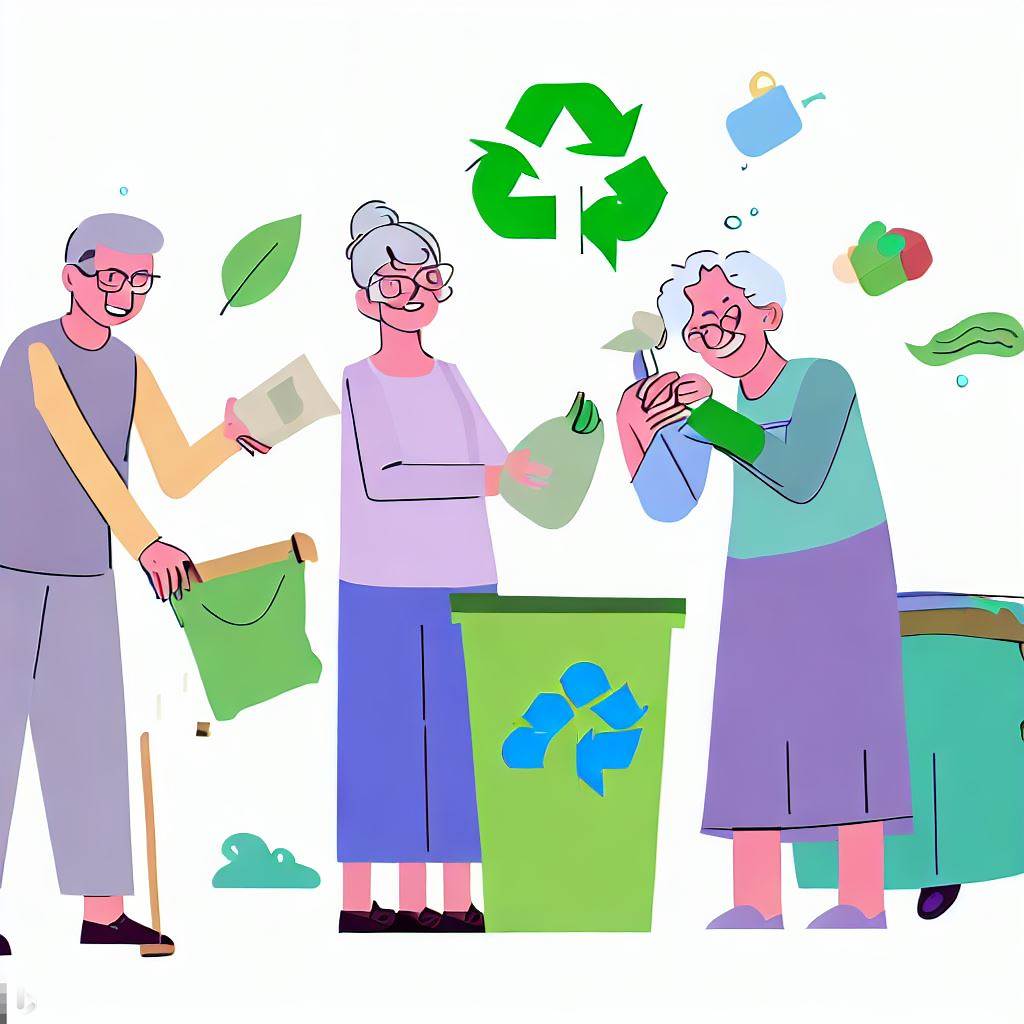Introduction
Waste management is a pressing global issue that demands our immediate attention. With rapid industrialization and population growth, the production of waste has reached alarming levels. However, by implementing effective waste reduction strategies, we can make a significant impact on the environment and move closer to a more sustainable future. In this blog, we will explore various approaches to reducing waste management and the benefits they bring.
Table of Contents
Embrace the 3 R’s: Reduce, Reuse, Recycle
The first and most fundamental principle in waste management is the adoption of the 3 R’s: Reduce, Reuse, and Recycle. By focusing on reducing waste generation, reusing materials, and recycling whenever possible, we can significantly minimize the amount of waste that ends up in landfills or incinerators. Individuals, businesses, and governments must work together to promote these principles and raise awareness about their importance.
Adopt a Circular Economy Approach
A circular economy aims to keep resources in use for as long as possible, extracting maximum value from them and minimizing waste generation. By embracing this approach, we can shift from the traditional linear model of “take, make, dispose” to a system where products are designed for durability, repairability, and recyclability. By closing the loop and promoting the reuse and recycling of materials, we can reduce waste and conserve resources.
Promote Composting and Organic Waste Management
Organic waste, such as food scraps and yard trimmings, constitutes a significant portion of our waste stream. Instead of sending this waste to landfills where it generates harmful greenhouse gases, we can adopt composting methods. Composting not only reduces waste but also produces nutrient-rich soil that can be used in agriculture and gardening. Community composting programs and home composting systems can be implemented to encourage individuals and communities to participate in organic waste management.
Encourage Sustainable Packaging and Consumer Choices
Excessive packaging is a major contributor to waste generation. To tackle this issue, businesses should prioritize sustainable packaging alternatives such as biodegradable materials or packaging made from recycled content. Additionally, consumers can make conscious choices by opting for products with minimal packaging or choosing reusable alternatives like refillable containers. By collectively supporting sustainable packaging initiatives, we can significantly reduce waste in the long run.
Educate and Raise Awareness
Education plays a crucial role in waste reduction efforts. By raising awareness about the environmental impacts of waste and providing information on waste management practices, we can empower individuals to make informed decisions. Schools, community organizations, and governments can conduct awareness campaigns, workshops, and educational programs to promote waste reduction and instill responsible waste management habits.
Reducing waste management practices can have several benefits for senior citizens, both in terms of their well-being and the overall community. Here are a few ways in which the above strategies can specifically help senior citizens:
- Cost Savings: Senior citizens often live on fixed incomes, and by practicing waste reduction strategies such as reducing, reusing, and recycling, they can save money on purchasing new items. For example, reusing containers or repurposing items can eliminate the need to buy new ones, reducing their expenses.
- Health and Safety: Senior citizens may face physical challenges or mobility issues that make waste management more difficult. By reducing waste generation, they can minimize the physical strain associated with handling and disposing of large amounts of waste. Additionally, implementing proper waste management practices, such as composting organic waste, reduces the risk of attracting pests or creating foul odors that can affect their living environment.
- Community Engagement: Engaging in waste reduction initiatives can provide senior citizens with opportunities for social interaction and community engagement. Participating in local composting programs, recycling initiatives, or educational workshops can connect them with like-minded individuals and foster a sense of belonging and purpose within their community.
- Improved Air and Water Quality: By reducing waste and promoting responsible waste management practices, senior citizens can contribute to improved air and water quality in their surroundings. Reduced waste generation means less pollution from incinerators and landfills, leading to cleaner air and a healthier environment for everyone, including vulnerable populations such as seniors who may be more susceptible to respiratory ailments.
- Sustainable Legacy: Senior citizens often have a deep sense of responsibility towards future generations. By actively engaging in waste reduction efforts, they can leave a sustainable legacy for their children and grandchildren. Demonstrating environmentally conscious behavior sets an example for younger generations, instilling values of sustainability and responsible waste management in their families and communities.
- Access to Green Spaces: Many waste reduction practices, such as composting or gardening, can be pursued in outdoor spaces. Senior citizens can benefit from spending time in nature, which has been shown to have positive effects on mental and physical well-being. Composting or participating in community gardens can provide opportunities for seniors to connect with nature and engage in activities that promote their overall health.
Conclusion
The issue of waste management requires urgent attention as we strive to build a more sustainable future. By adopting the principles of reduce, reuse, and recycle, embracing a circular economy approach, promoting composting and organic waste management, encouraging sustainable packaging, and educating individuals, we can make a significant impact in reducing waste generation. It is imperative that individuals, businesses, and governments come together to implement these strategies and take collective action towards a cleaner and greener planet. Let us all commit to reducing waste and creating a sustainable future for generations to come.

